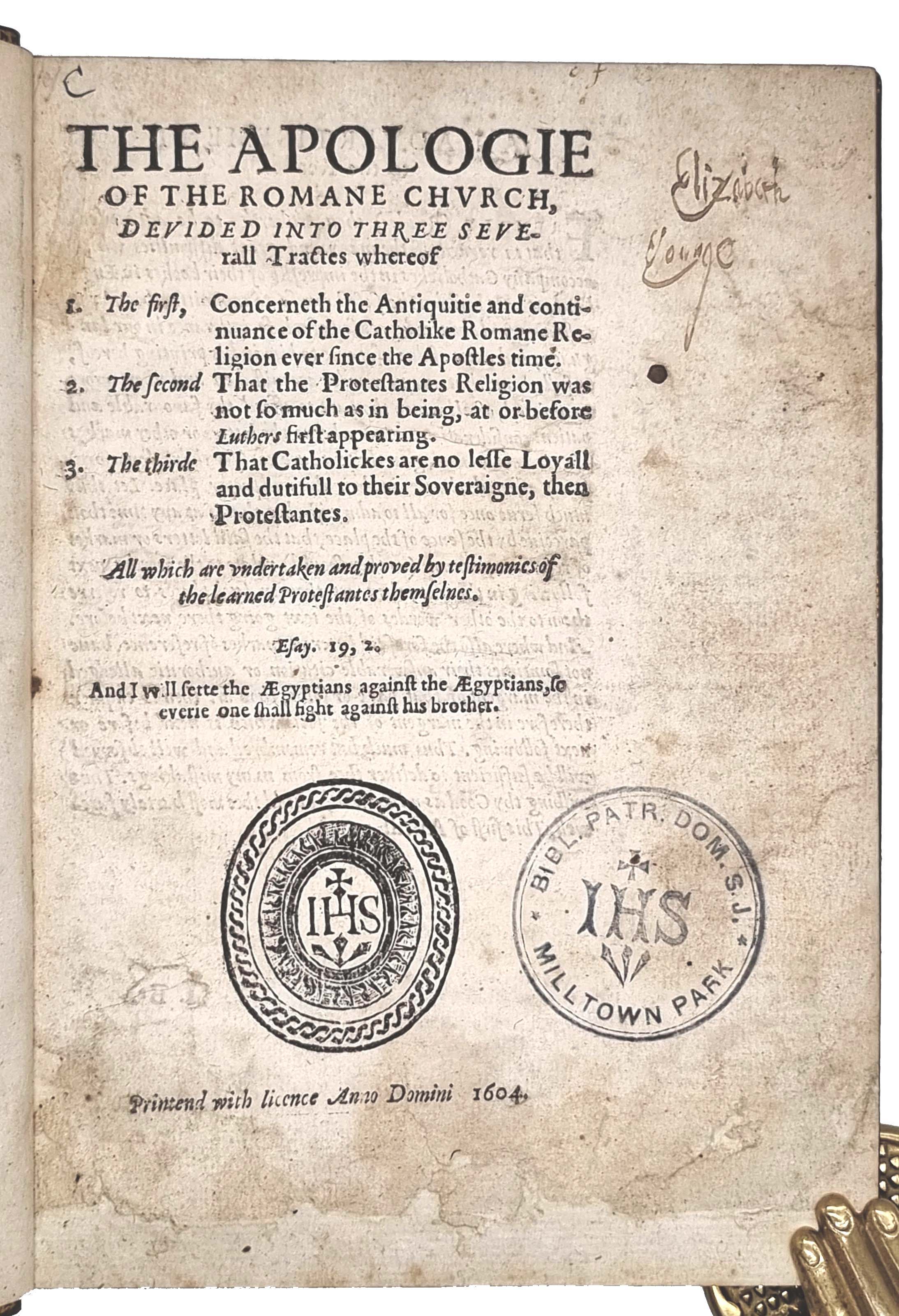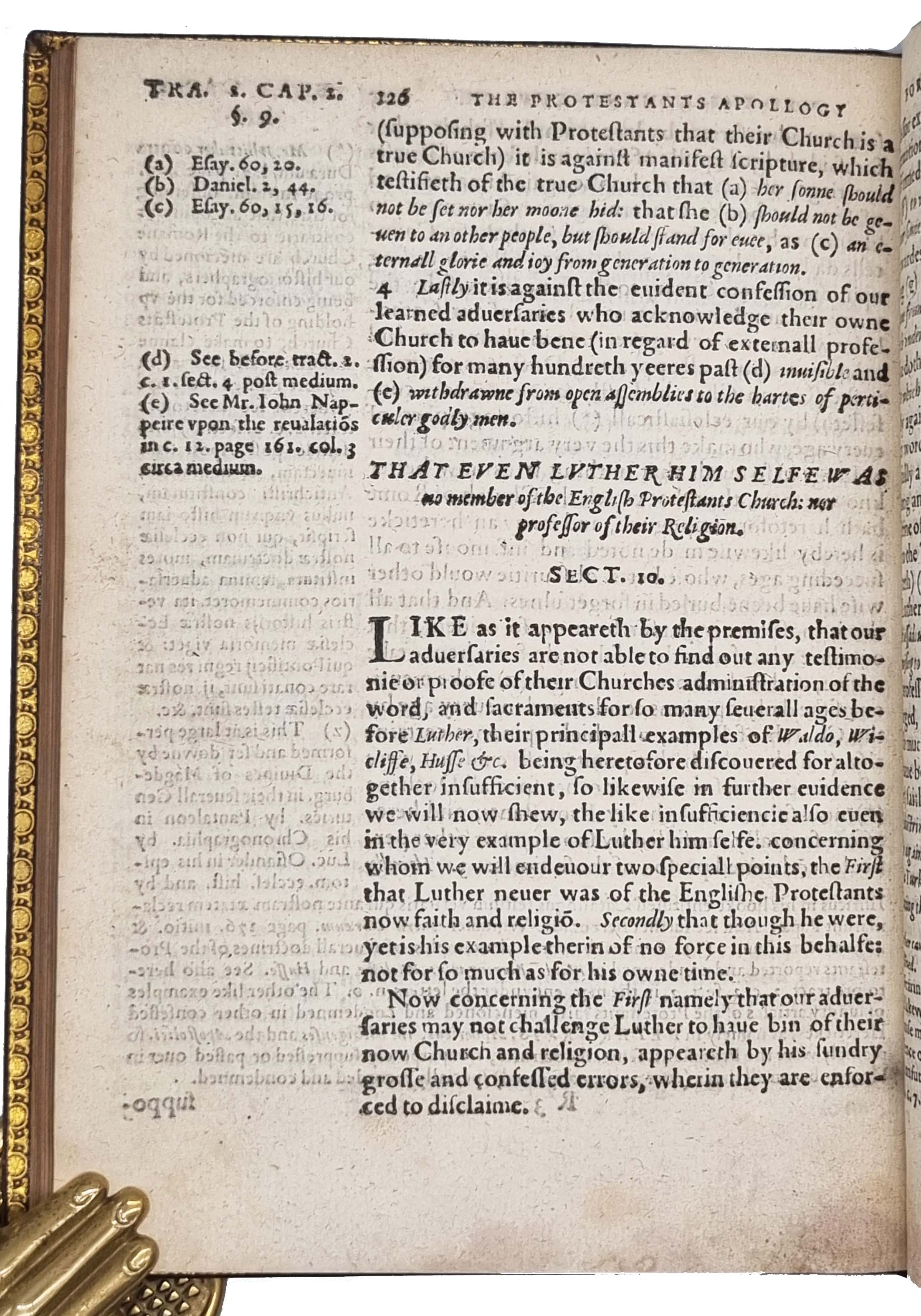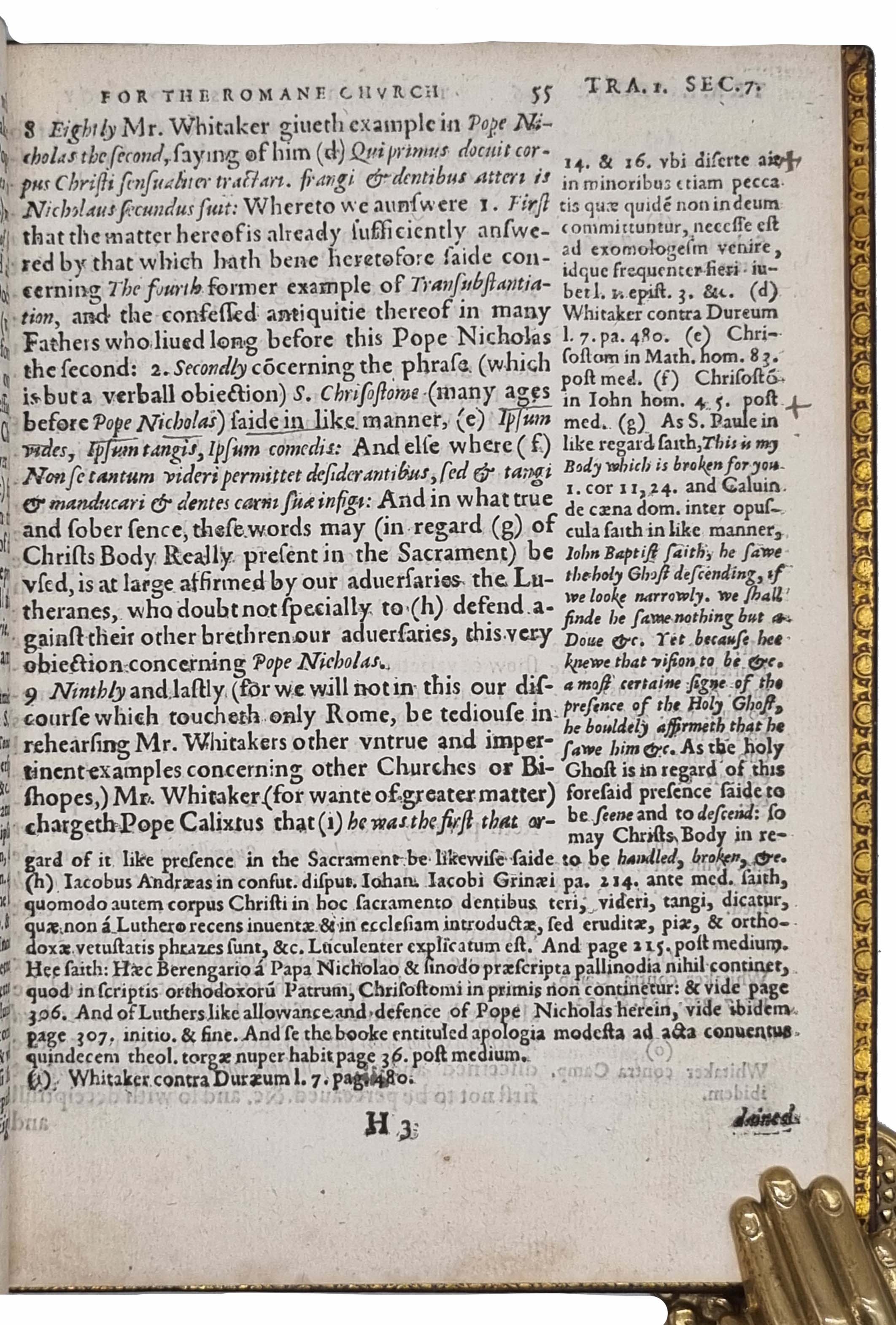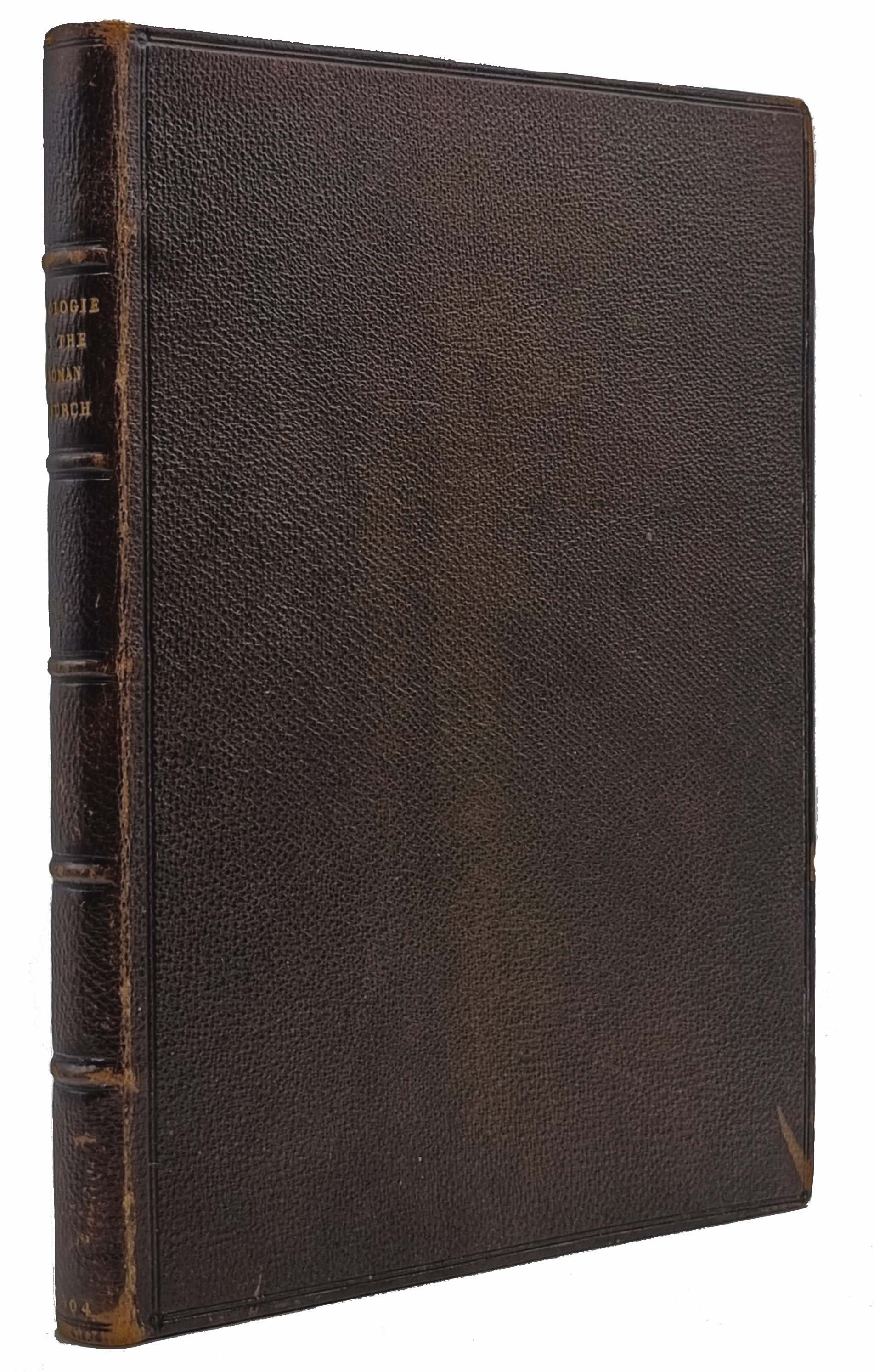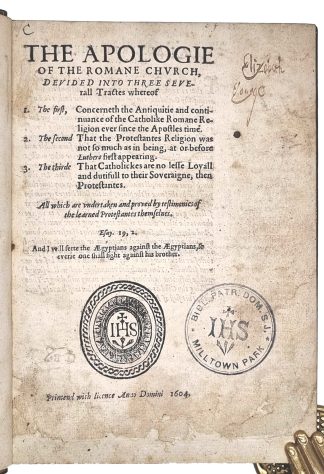ANDERTON, Lawrence
The apologie of the Romane Church, deuided into three seuerall tractes
England, Printend [sic] with licence [by the English secret press], 1604£5,250.00
FIRST EDITION. 4to. pp. [xviii], 58, 58-72, [i], 73-191, [i]. [[par.] , 2[par.]², A-2B .] Roman letter with some Italic. Woodcut IHS device on title, large woodcut initial at beginning of dedication to the King, incorporating an ‘IHS’ and various tools, typographical ornaments, library stamp of Milltown Park on title, their label and William O’Brian’s ex legato label on pastedown, early autograph of ‘Elizabeth Younge’ on title, W. Maskell’s in C19th hand on fly, marginal note in latin in early hand on [par.]4 recto. Light age yellowing, fore and lower edge of title backed, repairs to lower blank margin of first two and last four leaves, waterstain to lower blank margins, the occasional thumb mark, tiny worm trail in lower blank margin of two quires. A good copy in late C19th brown morocco, inner dentelles gilt, combed marbled end-leaves, a.e.g.
Extremely rare first edition of this controversial Catholic work clandestinely printed in England, probably at a secret press in Lancashire connected with William Wrench. Brerely was a pseudonym, and the true author is supposed to be the seminary priest Lawrence Anderton, though the text is sometimes attributed to James Anderton. It represents the beginnings of a new sort of controversial literature that aimed to refute its opponents using his, or his supporters’, own words. This work aimed to establish Catholic claims “by the testimonies of the learned Protestants themselves”. This first edition proved “something of a sensation” on publication and was “frequently praised and imitated by subsequent Catholic apologists” (Milward). The work is particularly interesting for its accounts of the earlier reformation movements of Huss, Wyclif, Waldo and others and their distinction from Lutheran Protestantism, as well as its historical appeal to Englishmen that they and their kings lived and died in the Catholic faith, with numerous examples. A short but valuable bibliography of Protestant writers and their works precedes the text.
“‘Bereley’ was a seasoned controversialist. As early in James’s reign as 1604, Bereley’s ‘Apologie of the Romane Church’ had set out to prove ‘the continuance of the Catholike Romane Religion ever since the Apostles time’, that ‘the Protestantes Religion was not so much as in being, at or before Luthers first appearing’, and that ‘Catholickes are no less Loyall and dutiful to their Soveraigne then Protestantes’. All the above theses were announced on the title page of the book that had no author’s name on it, but was decorated with a cartouche containing the monogram of Jesus’s name, IHS, which had been adapted as a Jesuit insignia, and ‘Printed with licence’ probably at a secret English press.” Kathleen Lynch. ‘Protestant Autobiography in the Seventeenth-Century Anglophone World.’
The Anderton family were associated with the printing of many clandestine Catholic works in England, a very dangerous occupation. “In the “Catalogue of Popish Books” printed in his Foot out of the Snare, 1624, the gossipy but sometimes remarkably well-informed John Gee has the following entry: “The reformed Protestant, by Brerely. There was a printing house supprest some three yeers since in Lancashire, where all Brerely his workes, with many other Popish Pamphlets, were printed.” The “printing-house… in Lancashire” is undoubtedly the secret press associated with the Anderton family of Birchley Hall, near Wigan. A & R list sixteen books from this press, all printed between 1615 and 1621, including two by the unidentified author who used the pseudonym John Brereley, sometimes thought to be Lawrence Anderton.” A. F. Allison. ‘Brereley’s Reformed Protestant.’
An extremely rare first edition.
In stock


